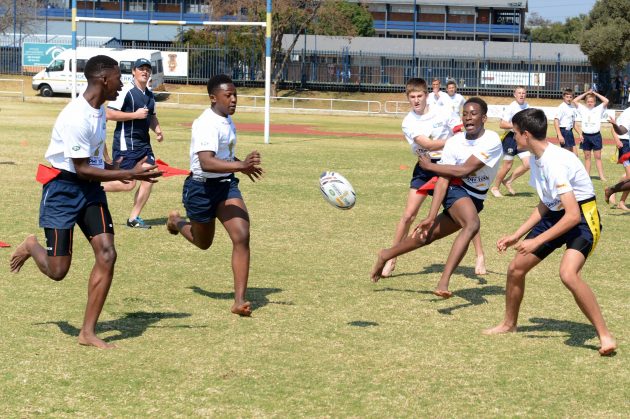It will boost numbers, says sports communications consultant Chris Wearmouth
Rugby Rant: Cut Contact Training
A FEW MONTHS ago I had a conversation with one of the rugby coaches at Warwick School. Shorn of full-contact training due to coronavirus restrictions, he told me that they had turned to minimal contact in training, playing with a variety of rules to hone the youngsters’ core skills. Not the full Ready4Rugby or structured six-a-side touch with 7m offsides and turnovers whenever the ball hits the deck, but with rules designed to hone whatever skill the coaches wanted to work on that day.
The lack of contact during the pandemic has taken away the essence of rugby, it could be argued. But what if it has, in fact, opened up the delights of oval-ball sport to youngsters who don’t find it enjoyable to be the smallest player stuck on the wing, or who recoil in horror at the prospect of being tackled by an early-developing behemoth of a lock.
Take the full contact out and all of a sudden there is the knowledge that if you get the ball into your hands there is the chance to run, to express yourself, to spend the hour of that games lesson getting some enjoyment out of rugby.
An experienced age-group coach told me that the majority of players in his squads were born between September and January. Physically these players have that innate advantage over those born later in the academic year, especially in those mid-teen years.
“If players are not enjoying themselves on the pitch, they will be lost to the sport”
If members of this second group aren’t enjoying themselves on the pitch they will be lost to the sport, scarred by their experiences. But what if they instead were kept engaged, perhaps by schools running a minimal contact programme in parallel with their full-contact programme?
Related: How to pass from the base – by Gary Street
What if they were allowed to aim for representing one of the England Touch age-group teams in the European Championships? What if, armed with those enhanced core skills, they then came back into the full-contact version of the sport once they were that little bit older and physically mature, confident in their ability to contribute to the team?
This, of course, is not even taking into account the question of how best to maintain oval-ball sports in an era of increased concern regarding concussions.
Don’t get me wrong, this isn’t a call for contact rugby to be banned in schools. But there is another way of approaching what is becoming a challenging situation in need of some lateral and imaginative thinking. So why not consider extending this transition for a few years? You never know, rugby – of whatever form – may just start to get that little bit more popular.
What gets your goat? Let us know on Facebook or tweet @Rugbyworldmag or email rugbyworldletters@futurenet.com
Can’t get to the shops? You can download the digital edition of Rugby World straight to your tablet or subscribe to the print edition to get the magazine delivered to your door.
Follow Rugby World on Facebook, Instagram and Twitter.





